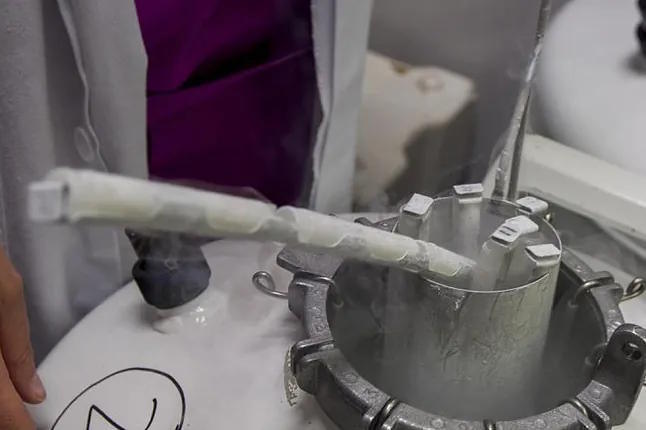Ten children conceived from the sperm of the same donor have been diagnosed with cancer in a case that opens the debate about the lack of international limits on these donations. As reported by The Guardian, the investigation began when two families went to fertility clinics where they had been treated because their children developed cancers that seemed to be related to a rare genetic variant.
The European Sperm Bank, which had supplied the sperm, confirmed that a rare variant in a gene called TP53 was present in part of the donor's sperm. A laboratory analysis concluded that the mutation was likely to cause Li-Fraumeni syndrome, one of the most serious hereditary predispositions to cancer. This case was presented by Edwige Kasper, a biologist at the University Hospital of Rouen (France), at the annual conference of the European Society of Human Genetics in Milan, where she called for "a European limit on the number of births or families from the same donor." Currently, there is no common regulation across different European countries.
The donation would have been used for the conception of dozens of children born between 2008 and 2015. At that time, it was not known that this rare variant was related to cancer, nor was it detected with usual screening techniques. "I analyzed the variant using population and patient databases, computer prediction tools, and the results of functional assays, and I concluded that the variant was probably carcinogenic and that children born from this donor should receive genetic counseling," Edwige Kasper told The Guardian. Children with this genetic variant are currently recommended to undergo regular whole-body magnetic resonance imaging follow-ups, brain scans, and, in adulthood, breast ultrasounds.
Parallel investigations in different parts of Europe have led to the genetic variant being found in 23 children so far. Ten of them have cancer, including cases of leukemia and non-Hodgkin lymphoma. How many inseminations used the sperm from that donor? According to The Guardian, the European Sperm Bank, which applies a limit of 75 families (worldwide) per donor, stated that more than 67 children were conceived using that specific sperm, but their policy was not to confirm the exact number of a specific donor's offspring. All relevant clinics have been alerted by the center.
"We are deeply affected by this case," said Julie Paulli Budtz, spokesperson for the European Sperm Bank, to the British media. She explained that "scientifically it is impossible to detect disease-causing mutations in a person's genetic background if you don't know what you are looking for."
